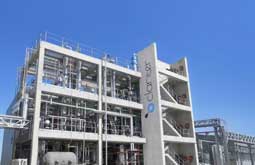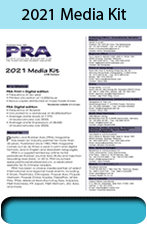Green materials: DSM/Clariter to pursue chemical recycling of Dyneema; Borealis/Tomra start-up plant for waste sorting and mechanical recycling

Dutch chemical firm DSM and clean-tech firm Clariter are to pursue a next-generation chemical recycling solution for products based on DSM’s Dyneema, an ultra-high-molecular-weight polyethylene (UHMWPE) fibre. As a first step, sample products – including ropes, nets, and ballistic materials made with Dyneema – were successfully converted at Clariter’s pilot plant in Poland, demonstrating the recyclability potential of Dyneema.
The partners tested the feasibility of using Dyneema as a feedstock in Clariter’s chemical recycling process. Sample products made with Dyneema were used in Clariter’s tests at its pilot plant in Poland and the technical viability of transforming Dyneema-based end-products into high-value, industrial grade, product families: oils, waxes, and solvents via Clariter’s patented three-step chemical recycling process. These can be further used as ingredients to manufacture new end and consumer products.
Moving forward, DSM Protective Materials and Clariter will continue to drive this initiative to shape a more sustainable world. Specifically, building on the success of the lab-scale trial, Clariter has scheduled commercial-scale trials at its facility in South Africa for 2021, with the aim to use Dyneema-derived feedstock in its full-scale European plants that will be built in the coming years. In addition, DSM will continue to actively explore the possibilities of reducing the environmental impact of Dyneema across all product life stages.

Meanwhile, in other news, Austrian chemical firm Borealis and recycling technology firm Tomra have started up an advanced mechanical recycling demo plant in Lahnstein, Germany. The plant processes both rigid and flexible plastic waste from households. And unlike many current recycling plants, it will produce the advanced solutions necessary for use in high-demanding plastic applications in various industries, including automotive and consumer products. With high purity, low odour, high product consistency and light colour fractions, these Borcycle M grade recycled polymers will meet customer quality requirements across the value chain.
The purpose of this demo plant is to generate material for brand owners and converters to qualify, validate and prove fit for use in their highly demanding applications. Technical success will set the groundwork for a commercial-scale advanced recycling plant.
“This plant is just the beginning of what’s possible when key players in the value chain come together to make a truly significant impact in the market,” says Volker Rehrmann, Executive Vice President and Head of Circular Economy at Tomra. “Having just launched the new Circular Economy Division, it is clear what a large role waste management and pivotal projects like this have on moving towards a sustainable future. We are proud to have initiated one of the most advanced mechanical recycling plants when it comes to post-consumer polymer waste. This will become an important enabler as we accelerate the transformation to a circular economy in the years to come, and we are excited to be a part of this pioneering project.”
Operation of the plant is a joint enterprise between Borealis, Tomra and Zimmerman. Borealis is responsible for the plant’s commercial success and contributes its expertise and knowledge in innovation, recycling and compounding. Likewise, Tomra contributes as a provider of technology-led solutions and brings its proven expertise, established process and market knowledge, which, in turn, enable the circular economy through advanced collection and sorting systems. Zimmerman is a waste management company with experience in sorting multiple types of waste, including plastics, and is responsible for successful plant operations and product quality.
“At P&G we are making packaging with the ‘next life’ in mind to help drive a more robust circular economy. We must increase the supply of high quality recycled plastic to enable the industry to deliver on this vision,” says Gian De Belder, Procter & Gamble (P&G) Technical Director, R&D Packaging Sustainability. “The innovative new approach that Borealis is taking shows potential to step-change both the quantity and quality of PCR available for our brands, and help us to achieve our 2030 goal to reduce our use of virgin plastic in packaging by 50%, or 300 kilotonnes annually. Early tests of the material looks very promising!”
“One major challenge towards more circular packaging is the availability of high-quality recycled plastics that can be used in the packaging of our brands,” comments Thorsten Leopold, Director International Packaging Technology Home Care at Henkel. “We are, therefore, very excited that this project brings together three proven experts along the value chain with the ambition to lift mechanical recycling to a new level.”
(PRA)
Subscribe to Get the Latest Updates from PRA Please click here
©2020 Plastics and Rubber Asia. All rights reserved.

©2020 Plastics and Rubber Asia. All rights reserved.
Home Terms & Conditions Privacy Policy Webmail Site Map About Us















